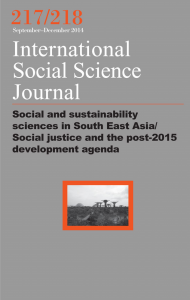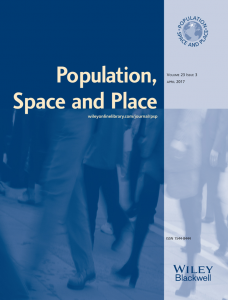How men use, abuse, and misunderstand Sexual Capital
A couple of weeks ago I was listening to Guardian columnist Polly Toynbee discuss the recent political sex scandal in the UK where Lord Rennard – a Liberal Democrat peer and senior party grandee (picture above) – was accused of sexual harassment and inappropriate ‘groping’ of junior party members. Although cleared of criminal charges, the saga rolls on as the women still maintain their accusations of sexual impropriety against Rennard, which he denies and refuses to apologise for, and the party are trying to resolve the matter internally.
I don’t want to discuss this story directly, which has had plenty of column inches dedicated to it already, but something Toynbee said really made me stop and listen. She implied that Lord Rennard, being a ‘portly, elderly gentlemen’ only stood a chance with ‘younger, more attractive women’ because of his powerful position in the party and the professional favours he might be able to give them. Tonybee admitted that her column had received a lot of negative comments because she had dared to bring up Rennard’s appearance, but she remains defiant that physical attractiveness is part of the story here, because, as she said, only half-jokingly, “I wouldn’t put my hand on George Clooney’s knee – you kind of know your level”. When challenged that if Rennard had been more attractive, then what he had (allegedly) done would still have been unacceptable, she replied that there would be slightly more “equality” there, and that equality comes in all sorts of ways, including “physical attractiveness”.
I thought about this and concluded that, whilst unwanted groping can never be defensible, Toynbee’s probably right in that inequality can manifest itself in, amongst other things, attractiveness. The cliché that attractive women enjoy preferential treatment from men is a well-worn one, but we rarely consider how attractiveness can work for men. Can attractive men get away with behaviour that unattractive men can’t? I’m afraid they can. The same behaviour which would be seen as sleazy or creepy from an ugly guy is often interpreted as funny or cute from another, handsome one. Furthermore, rather than just ‘getting away with’ bad behaviour, such behaviour might actually become enjoyable for a woman, if it came from an attractive man. Had Mister Rennard been twenty years younger, or had a touch of Brad Pitt about him, then the women involved might have been flattered, rather than pressing criminal charges. Consider a Russell Brand who was five stone fatter or had lost all his hair; would his rather old-fashioned unreconstructed gender-politics still be “cheeky-chappy”, or a bit cringeing? Maybe in ten years’ time, we’ll find out.
Because this doesn’t just go for attractiveness, but, I would argue it also goes for age as well. There comes a point in time at which a man being flirtatious or ‘edgy’ changes from endearing to awkward. ‘Dirty man’ just doesn’t have the same, vicious ring to it as ‘dirty old man’, does it?
Of course I’m talking in general terms here, and attractiveness and definitions of ‘old’ are both subjective terms. But there is a growing sociological literature around Sexual or Erotic Capital, recognising that attractiveness is power; increasingly so in a modern world dominated by images and Image.
Catherine Hakim’s thought-provoking examination of ‘Erotic Capital’ tells us that attractiveness – which she disaggregates into factors such as charisma, social presentation and liveliness, as well as facial beauty – has clear benefits in economic and political spheres, as well as just in attracting sexual partners. She cites evidence that in the workplace, attractiveness can add 10-20% to someone’s earnings – and, more interestingly, this benefit is more pronounced for attractive men, who earn about 17% more than ‘average-looking’ men, than for attractive women, who earn about 12% more than average-looking women. This 5 point difference illustrates that, possibly going against what one might expect, attractiveness appears to be more economically beneficial to men than it is for women. Hakim also shows that large corporations are increasingly being led by (mostly male) CEOs who possess erotic capital, and that leading politicians such as Barack Obama and Christine Lagarde have also traded on their erotic capital to join the political Elite.
Hakim received a fair amount of media attention and a subsequent feminist backlash (a taste of which can be seen here) as her argument that women should maximise their erotic capital, by wearing make-up or nice clothes, was viewed, rightly or wrongly, as a capitulation to patriarchal aesthetic norms. Little or no attention seems to have been paid to the fact that erotic capital can be used and abused by men as well.
To return to the issue of sexual harassment, Toynbee’s remark that you ‘kind of know your level’ echoes work by Wuensch and Moore (2004) who found that, in a mock court case, female jurors were more likely than male jurors to conclude that sexual harassment had taken place when the litigants were different in attractiveness, i.e. if a defendant was seen as more or less attractive than the plaintiff, jurors were more likely to find the defendant guilty than if they were similarly attractive. However, this pattern only held for female jurors, not male ones.
Perhaps we can glean from this, as well as our own experiences, that women are more aware of inequalities in attractiveness and ‘know their level’ (and the relative ‘levels’ of others) better than men do. This may be because women, as potential mothers with more invested in reproduction than men, and are therefore more motivated for ‘positive assortative mating’ (that is, attraction to others who are similar to oneself) than men are (see Etcoff, 1999, for more on this). Perhaps if Lord Rennard had known his level, if he had realised how much – or how little – sexual capital he possessed, he wouldn’t have got into as much trouble.
References
Etcoff, N. (1999) Survival of the Prettiest: The Science of Beauty. New York: Doubleday
Hakim, C. (2011)Honey money : the power of erotic capital. London: Allen Lane
Wuensch, K., Moore, C. (2004) Effects of Physical Attractiveness on Evaluations of a Male Employee’s Allegation of Sexual Harrassment by His Female Employer. Journal of Social Psychology. Apr2004, Vol. 144 Issue 2, p207-217





1540-6210/asset/society_affiliation_image.gif?v=1&s=812a48e1b22880cc84f94f210b57b44da3ec16f9)
